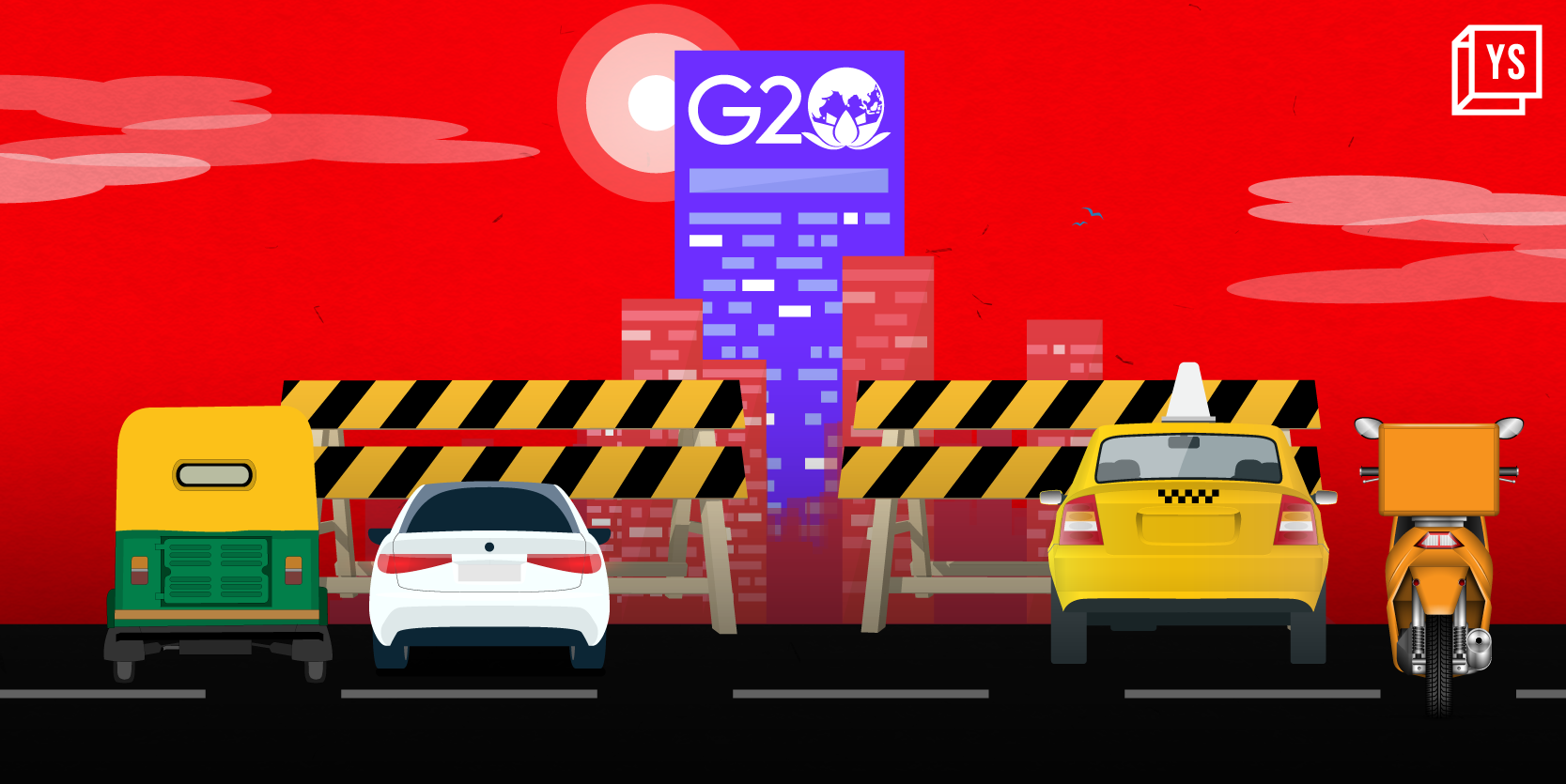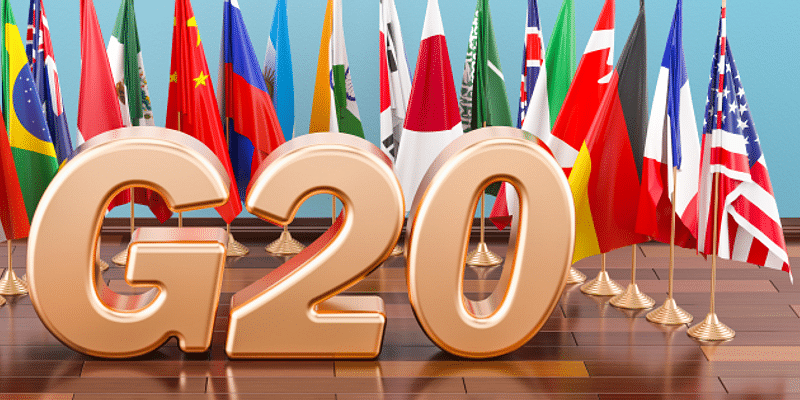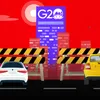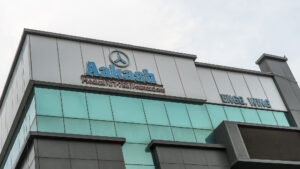
The usually bustling Instamart dark store located in South Delhi—just outside the New Delhi district declared by the Delhi government as a ‘Controlled Zone’ for the G20 Summit—now lies mostly empty.
Even the tea vendor, who usually caters to these gig workers, didn’t set up his shop outside the dark store.
The store manager, who prefers to remain anonymous, tells YourStory that only four regular gig workers have been fulfilling most of the orders in the area since morning.
“But more riders will log in post afternoon when they see the surge rates,” he adds.
Sukhi, one of the four delivery persons, has had a relatively busy morning. “Most of my friends didn’t log in today because they thought they wouldn’t receive many orders,” he shares.
According to the incentives announced by Swiggy, Sukhi stands to earn an extra Rs 20 per order during peak hours.
He adds, “Some orders are taking longer to fulfil because the government is diverting traffic away from highways leading to the restricted zones. But I don’t mind the trouble as I’ve already earned an extra Rs 200 since I logged in three hours ago.”
Meanwhile, Ganesh, who was delivering a bowl of rajma chawal to ITC Sheraton hotel in Saket—13 km away from the G20 Summit venue, faced a setback as Delhi Traffic Police stopped him before he could reach his destination. He was not allowed to enter the area even upon showing the delivery location.
“I tried all three lanes that lead to the hotel, but they were blocked. In the end, I had to call the person who placed the order and explain the situation. He was kind enough to come to the nearest barricade to collect his order and even gave me a tip, apologizing for the inconvenience,” he recounts.
Like Ganesh, many others also faced difficulties in completing deliveries or transporting passengers due to traffic restrictions in Delhi.

.thumbnailWrapper
width:6.62rem !important;
.alsoReadTitleImage
min-width: 81px !important;
min-height: 81px !important;
.alsoReadMainTitleText
font-size: 14px !important;
line-height: 20px !important;
.alsoReadHeadText
font-size: 24px !important;
line-height: 20px !important;

Some put the onus on their companies. Pawan, a grocery delivery worker for Blinkit, expresses his frustration that Zomato has not announced any special incentives.
“This company knows how to exploit us; they’re not concerned about our welfare,” he laments.
Ramesh, who drives for Uber, encountered a troubling situation when law enforcement stopped him midway while transporting a passenger to Rohini and confiscated his keys.
It took him an hour of pleading to get his bike back as the alternative was to wait for four days, incurring losses of Rs 500-700 per day. When asked if Uber issued any advisories about the restricted zones, he says he didn’t receive any communication.
“But Uber provides me with the most work, so I have to stick with them,” Ramesh mumbles.
On the other hand, Toshi, who delivers daily essentials for BigBasket, received clear instructions from the area managers to avoid certain roads and areas.
The company is also not taking any orders from the restricted areas, as per a message displayed on the app.
Notably, BigBasket is running an in-app campaign, nudging customers to “stock up before the G20 Summit begins.”
“There is this house where I deliver regularly. The customers who live there are kind and have my cell phone number. They called me today and requested if I could deliver their orders today, but the warehouse was not accepting orders for that area, so I couldn’t do much,” Toshi narrates.
Aijaz, who drives a hatchback for Uber, had to decline rides to Gurugram, uncertain if he could return to Delhi, where he resides. He prefers rides to Gurugram because the longer routes fetch him more money per ride and save on fuel driving on the highway.
However, the Uber app continues to accept trips to restricted areas, including those involving border crossings, without mentioning any travel advisories.
After being logged in for four hours and rejecting six rides to restricted zones, Aijaz has decided to head to his wife’s village near Lucknow and return when the summit ends.
G20 Summit is set to be held on September 9-10 as leaders, not just from 19 countries and the European Union but also many observer countries, arrive in the capital for the intergovernmental conference.
The restriction on the movement of passenger and commercial vehicles will be lifted on September 11.
Edited by Kanishk Singh










